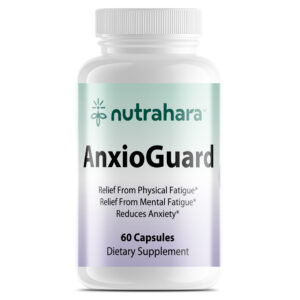
Nutrahara Blog
Nutrahara Blog
Essential Nutrition During Pregnancy
1. The Foundations of Nutrition During Pregnancy
1.1 Understanding Nutritional Needs in Each Trimester
Pregnancy is a dynamic journey, and your nutritional needs shift as your baby develops. In the first trimester, energy requirements don’t drastically increase, but nutrient density matters most. Focus on folate-rich foods like spinach and lentils to support neural tube development. As you enter the second trimester, your body requires approximately 300 extra calories daily, ideally from whole, nutrient-dense sources such as sweet potatoes, quinoa, and lean proteins. By the third trimester, calcium and iron are critical for the baby’s skeletal development and oxygen supply. Incorporate foods like fortified plant milks and lean red meat to meet these needs.
Learn more about balanced caloric intake during pregnancy here.
1.2 Essential Vitamins and Supplements for Expecting Mothers
While whole foods should form the basis of your diet, some nutrients are hard to obtain through food alone. Omega-3 fatty acids, especially DHA, are crucial for fetal brain development and can be supplemented with high-quality fish oil or algae-based capsules for vegetarians. Prenatal vitamins with adequate iodine ensure optimal thyroid function, which is vital for the baby’s growth.
1.3 Superfoods for Pregnant Women
Think beyond the typical advice and embrace unconventional pregnancy superfoods. Chia seeds are a powerhouse of fiber and omega-3s, ideal for preventing constipation and supporting brain health. Seaweed snacks, rich in iodine, are excellent for thyroid function. Kefir, a fermented dairy product, not only aids digestion but also delivers probiotics that boost immunity.
1.4 Common Pregnancy Nutrition Myths
It’s a myth that pregnancy means eating for two. Overeating can lead to excessive weight gain and complications. Instead, focus on eating nutrient-dense foods in appropriate portions. Another misconception is that spicy foods or certain vegetables cause miscarriage. While every woman’s tolerance varies, these claims lack scientific evidence, and variety in your diet often provides more benefits than risks.
By aligning your diet with each trimester’s unique needs, you empower both yourself and your baby with a foundation for optimal health.
2. The Role of Herbs During Pregnancy
2.1 Safe and Beneficial Herbs for Pregnant Women
Herbs can provide natural support during pregnancy, addressing common discomforts and boosting overall health. However, safety is paramount. The following herbs are commonly regarded as safe and beneficial when used appropriately:
- Ginger: Effective for managing morning sickness and nausea. A cup of ginger tea or adding fresh ginger to meals can provide relief.
- Chamomile: Known for its calming effects, chamomile can ease anxiety and improve sleep quality. Opt for organic, caffeine-free varieties.
- Raspberry Leaf: Traditionally used to strengthen the uterus, it may help prepare the body for labor when consumed in the third trimester.
2.2 Herbs to Avoid During Pregnancy
While many herbs are beneficial, others may pose risks to the mother or developing baby. It’s crucial to steer clear of the following:
- Pennyroyal: Known for its toxic effects, it can induce uterine contractions and lead to complications.
- Dong Quai: A uterine stimulant that may increase the risk of miscarriage.
- Aloe Vera: Though commonly used for digestion, it can cause uterine contractions if ingested.
Always consult a healthcare provider before introducing any herbal remedies.
2.3 Natural Remedies for Common Pregnancy Discomforts
Herbs can serve as natural, gentle remedies for typical pregnancy challenges:
- For Morning Sickness:
- Peppermint: Soothe queasiness with peppermint tea or oil.
- Ginger: Use fresh ginger in hot water or soups.
- For Indigestion and Heartburn:
- Slippery Elm: Protects the stomach lining and reduces acidity.
- Fennel Seeds: Aids digestion and alleviates bloating.
- For Sleep Disturbances:
- Lavender: Enjoy lavender tea or diffuse essential oil for relaxation.
- Valerian Root: In small doses, it may support deeper sleep.
- For Swelling and Water Retention:
- Dandelion Leaf: Acts as a natural diuretic without depleting potassium levels.
- Parsley: Can gently reduce fluid retention when consumed as a tea.
Caution and Personalization
Every pregnancy is unique, and herbal remedies should be tailored to individual needs. Consulting with a certified herbalist or healthcare professional ensures the safe and effective use of herbs. Integrating these natural allies into your routine can bring comfort and balance to your pregnancy journey.
3. Nutrition During Lactation: Fueling Postpartum Recovery
3.1 Nutritional Goals for Breastfeeding Mothers
Breastfeeding requires extra energy and nutrients to support milk production and postpartum recovery. Key goals include:
- Increased Caloric Intake: Breastfeeding burns an additional 400–500 calories daily. Prioritize nutrient-dense snacks like trail mix, Greek yogurt with fruit, or avocado toast.
- Hydration: Adequate hydration is essential to maintain milk supply. Aim for at least 10–12 cups of water daily and include hydrating options like herbal teas and coconut water.
- Nutrient Replenishment: Focus on iron, calcium, and vitamin D to restore levels depleted during pregnancy.
3.2 Key Nutrients for Quality Breast Milk
Breast milk quality reflects the mother’s diet. Essential nutrients include:
- DHA (Omega-3 Fatty Acids): Supports infant brain and eye development. Found in salmon, walnuts, and flaxseeds.
- Protein: Fuels milk production and promotes maternal recovery. Sources include eggs, beans, and lean meats.
- Iodine: Essential for infant thyroid function. Found in iodized salt and dairy products.
- B Vitamins: Aid energy production for both mother and baby. Include whole grains, leafy greens, and fortified cereals.
3.3 Foods to Avoid While Breastfeeding
Certain foods and substances may affect milk production or cause discomfort for the baby:
- Excess Caffeine: Can make the baby irritable and disrupt sleep. Limit to one cup of coffee or tea per day.
- Spicy Foods: May irritate some infants, though this varies by baby.
- Alcohol: Small amounts may pass into breast milk; consider timing feedings accordingly.
3.4 Tips for Postpartum Weight Management
Balancing weight loss with maintaining milk supply requires a gentle approach:
- Don’t Rush: Focus on gradual weight loss, about 1–2 pounds per week.
- Eat Balanced Meals: Include complex carbs, healthy fats, and lean proteins in every meal.
- Incorporate Light Exercise: Activities like walking, yoga, or swimming can help restore fitness levels.
- Listen to Your Body: Hunger cues are essential; breastfeeding mothers often feel hungrier due to increased energy demands.
By aligning your diet with these strategies, you can ensure both you and your baby thrive during this transformative postpartum period. A nourishing approach not only supports lactation but also aids in your physical and emotional recovery.
4. The Role of Herbs During Lactation
4.1 Galactagogues: Herbs to Boost Milk Supply
Galactagogues are herbs known to help increase breast milk production. While many herbs have traditional uses for supporting lactation, it’s essential to use them cautiously and in moderation. Popular herbs for boosting milk supply include:
- Fenugreek: One of the most well-known herbs for increasing milk production. Fenugreek seeds contain compounds that mimic estrogen and promote milk flow.
- Blessed Thistle: Often used in combination with fenugreek, blessed thistle stimulates milk production and can help mothers facing low milk supply.
- Fennel: This herb not only boosts milk production but can also alleviate gas and bloating in both the mother and baby. Fennel tea or adding fennel seeds to meals can be effective.
- Alfalfa: Known for its ability to stimulate milk production, alfalfa is also rich in vitamins and minerals that can support both the mother’s health and milk supply.
Herbs should be used with care, and it’s important to consult a healthcare provider before incorporating them into a lactating mother’s routine.
4.2 Herbal Teas for Relaxation and Recovery
Herbal teas can offer both physical and emotional benefits for breastfeeding mothers. These calming teas can promote relaxation, help with sleep, and support postpartum recovery:
- Chamomile: Known for its gentle calming properties, chamomile tea can reduce stress and help improve sleep quality for mothers adjusting to postpartum life.
- Lavender: This herb helps reduce anxiety and stress, offering relief to overwhelmed new mothers. A cup of lavender tea or a few drops of lavender essential oil in a diffuser can be soothing.
- Lemon Balm: A member of the mint family, lemon balm has mild sedative properties that help reduce stress and improve sleep without causing drowsiness.
These herbal teas can be a wonderful way to unwind and relieve the mental and physical strains of new motherhood.
4.3 Caution: Herbs to Avoid While Breastfeeding
While many herbs offer benefits, there are certain herbs that should be avoided during lactation due to potential negative effects on milk supply or infant health:
- Sage: Known for its ability to reduce milk production, sage should be limited or avoided, particularly if there are concerns about low milk supply.
- Peppermint: Large amounts of peppermint may decrease milk production in some women. However, small amounts, such as in tea, may be safe.
- Parsley: Although parsley has various health benefits, it may reduce milk supply when consumed in excessive amounts.
Before introducing any herbs, it’s essential to discuss their use with a healthcare provider to ensure they’re appropriate for your personal situation and health needs.
Herbs can provide powerful support during lactation, but they should be used thoughtfully and with proper guidance. A combination of safe galactagogues and calming herbs can help maintain milk supply, enhance recovery, and improve overall well-being for breastfeeding mothers.
5. Integrating Exercise and Yoga During Pregnancy and Lactation
5.1 The Importance of Staying Active During Pregnancy
Maintaining an active lifestyle during pregnancy offers a wide range of benefits, both physically and emotionally. Regular exercise can help reduce common pregnancy discomforts such as back pain, swelling, and fatigue, while promoting overall well-being. Key benefits include:
- Improved Circulation: Exercise helps prevent swelling, supports better blood flow, and reduces the risk of varicose veins.
- Enhanced Mood: Physical activity stimulates endorphin production, which can alleviate stress, anxiety, and pregnancy-related mood swings.
- Better Sleep: Regular exercise helps regulate sleep patterns, making it easier to rest during pregnancy.
- Increased Strength and Flexibility: Exercises like swimming or walking can improve muscle tone and joint flexibility, making labor and recovery smoother.
Pregnant women should aim for 150 minutes of moderate-intensity exercise per week, as recommended by health experts, with a mix of aerobic and strength-building activities. Always consult a healthcare provider before starting any new fitness routine.
5.2 Safe Exercises During Pregnancy
Certain exercises are particularly beneficial for pregnant women, providing safe and effective ways to stay active:
- Walking: A low-impact exercise that is easy to incorporate into daily life, walking helps maintain cardiovascular health without putting too much strain on the joints.
- Swimming: The buoyancy of water reduces pressure on the body, making swimming an ideal full-body workout that improves cardiovascular endurance and relieves joint pain.
- Prenatal Pilates: Pilates exercises focus on core strength, balance, and flexibility, which can be helpful in preparing the body for labor and easing pregnancy discomfort.
- Strength Training: Light weights or bodyweight exercises can help improve muscle tone and endurance, providing support for carrying extra pregnancy weight.
5.3 The Benefits of Yoga During Pregnancy
Yoga offers numerous benefits for pregnant women, helping to reduce stress and improve flexibility, strength, and breathing capacity. Key benefits of yoga during pregnancy include:
- Stress Reduction: Gentle yoga poses and deep breathing techniques help calm the nervous system, reduce anxiety, and improve emotional well-being.
- Increased Flexibility: Yoga enhances flexibility, particularly in the hips, pelvis, and lower back, which can alleviate pregnancy-related aches.
- Breath Control for Labor: Prenatal yoga often incorporates breathwork that can be useful for relaxation during labor and delivery.
- Posture Support: Yoga poses strengthen muscles that help maintain proper posture, counteracting the strain of carrying additional weight during pregnancy.
Some safe and effective yoga poses for pregnant women include:
- Cat-Cow Pose: Helps improve spinal flexibility and alleviates lower back pain.
- Child’s Pose: A gentle resting pose that helps stretch the back, hips, and knees, reducing tension.
- Warrior II: Strengthens the legs and hips while promoting balance and focus.
5.4 Postpartum Exercise and Yoga for Recovery
Exercise and yoga can also play a vital role in postpartum recovery. They promote physical healing, emotional recovery, and a return to fitness. Key tips for post-labor exercise include:
- Start Slowly: Begin with gentle exercises, such as pelvic floor exercises (Kegels) and light stretching.
- Focus on Core Strength: Gentle core exercises can help rebuild abdominal strength after childbirth, aiding in postpartum recovery.
- Reintroduce Yoga: Focus on poses that support recovery, such as restorative yoga, which helps relax the body and mind, reducing any lingering tension from childbirth.
- Mindful Movement: Postpartum yoga and exercise should be about nurturing your body, regaining flexibility, and relieving stress rather than pushing for intense physical challenges.
By incorporating both exercise and yoga into pregnancy and postpartum routines, women can enjoy improved health, reduced stress, and a smoother recovery process, all while supporting both their physical and emotional well-being.
6. Lifestyle Adjustments for a Healthier Pregnancy and Lactation
6.1 Prioritizing Sleep During Pregnancy and Lactation
Adequate rest is crucial for both the mother and baby during pregnancy and lactation. Sleep supports physical recovery, mental health, and overall well-being. However, many women experience difficulty sleeping during these stages due to physical discomforts or hormonal fluctuations. Here are some tips for better sleep:
- Create a Sleep Routine: Going to bed and waking up at the same time every day can help regulate your sleep cycle.
- Sleep on Your Left Side: This position improves blood flow to the placenta and kidneys, reducing swelling and promoting better circulation.
- Use Supportive Pillows: A pregnancy pillow or extra cushions can provide support for the belly, hips, and back, making sleep more comfortable.
- Limit Screen Time: Avoid electronic devices at least one hour before bed to improve the quality of sleep.
6.2 Stress Management and Mental Health
The physical and emotional challenges of pregnancy and lactation can lead to increased stress. Managing stress is crucial for both the mother’s well-being and the baby’s health. Consider the following strategies:
- Mindfulness and Meditation: Regular mindfulness exercises can help reduce anxiety and promote relaxation. Even five minutes a day can have a positive impact.
- Journaling: Writing down thoughts and feelings can help process emotions and reduce mental clutter.
- Support System: Surrounding yourself with supportive friends, family, and a network of other mothers can provide emotional relief and encouragement.
- Therapy or Counseling: If feelings of anxiety or depression arise, speaking with a healthcare provider or therapist can offer professional support.
6.3 Healthy Habits for a Balanced Lifestyle
Maintaining a balanced lifestyle during pregnancy and lactation promotes overall health and supports both the mother and baby. Implementing small but consistent healthy habits can make a big difference:
- Stay Hydrated: Aim for at least 10–12 cups of water per day to support milk production and maintain hydration.
- Avoid Smoking and Alcohol: These substances can negatively affect pregnancy and breastfeeding. Reducing or eliminating them is vital for a healthier outcome.
- Moderate Caffeine Consumption: Excessive caffeine intake can interfere with sleep and irritate the baby. Limit to one cup per day if necessary.
- Plan Meals Ahead: Preparing healthy meals in advance helps ensure you maintain a nutritious diet despite the demands of pregnancy and new motherhood.
6.4 Maintaining a Healthy Weight
Weight gain is a natural part of pregnancy, but it’s essential to manage it healthily to support both the mother’s and baby’s well-being. Key strategies include:
- Focus on Nutrient-Dense Foods: Prioritize whole foods like fruits, vegetables, lean proteins, and whole grains rather than empty-calorie foods.
- Avoid Crash Dieting: Rapid weight loss after childbirth can impact milk supply. Focus on gradual weight loss through proper diet and moderate exercise.
- Monitor Portion Sizes: Eating the right amount is important, as overeating can lead to excessive weight gain that can affect pregnancy outcomes.
6.5 Creating a Balanced Environment for the Baby
A positive environment benefits both the mother’s and baby’s health. This includes emotional and physical space that supports growth, relaxation, and bonding:
- Reduce Toxins: Minimize exposure to chemicals in household cleaning products, food, and personal care products. Opt for natural, non-toxic alternatives whenever possible.
- Create a Peaceful Space: Establish a calm environment in the home with soft lighting, calming sounds, and minimal clutter.
- Bond with Your Baby: Prenatal music, talking to the baby, or even gentle belly massages can promote early bonding.
Adopting these lifestyle adjustments can help mothers achieve a healthier pregnancy and smoother lactation journey, leading to enhanced well-being for both mother and baby.
7. Testimonials: Real Stories from Real Mothers
7.1 Sarah’s Experience: A Balanced Approach to Nutrition and Exercise
Sarah, a first-time mother, found that combining nutrition and exercise helped her feel her best during pregnancy and postpartum:
- Nutrition: “I focused on eating a well-balanced diet rich in fruits, vegetables, and lean protein. I also made sure to take my prenatal vitamins every day to ensure I had the nutrients needed for both me and my baby.”
- Exercise: “I continued my regular walking routine throughout pregnancy, and after I gave birth, I incorporated postpartum yoga. It helped me feel stronger, more centered, and prepared for the physical demands of motherhood.”
7.2 Jessica’s Story: The Power of Herbs and Mental Health
Jessica, who had a challenging pregnancy, turned to herbal remedies and stress management practices to ease her journey:
- Herbs: “I used fenugreek and blessed thistle to help with milk production, and I found they really made a difference. I also drank chamomile tea to help with my anxiety. It calmed me down and made me feel more relaxed.”
- Mental Health: “I struggled with anxiety after giving birth, so I started meditating every day for 10 minutes. It helped me center myself and feel more at peace, especially during the sleepless nights.”
7.3 Emily’s Insight: The Importance of Lifestyle Adjustments
Emily, a mother of two, emphasizes the importance of lifestyle changes for a smoother pregnancy and postpartum period:
- Sleep: “I made sleep a priority, even if it meant taking naps during the day. Getting enough rest made a huge difference in my energy levels.”
- Support: “I also made sure to ask for help from my partner and family. Having that support system made it easier for me to focus on my well-being and recover more quickly after childbirth.”
These real stories highlight how small lifestyle changes, proper nutrition, and mental health care can have a significant impact during pregnancy and lactation. Each mother’s journey is unique, but many find that a balanced approach to health is the key to thriving during this transformative time.
8. Quick Tips and Tricks for Busy Moms
8.1 Nutrition on the Go
Balancing nutrition with a busy schedule can be challenging, but here are some quick solutions:
- Prep Meals in Advance: Prepare and freeze healthy meals in batches to have ready-to-eat options.
- Grab-and-Go Snacks: Stock up on nutrient-dense snacks like nuts, yogurt, and fruit to keep you energized throughout the day.
- Smoothies: A quick and nutritious meal replacement—blend up leafy greens, fruits, protein powder, and healthy fats like avocado or nut butter.
8.2 Self-Care in Minutes
Finding time for yourself is essential for well-being:
- Quick Meditation: Take 5 minutes for deep breathing or guided meditation to reduce stress and recharge.
- Stretching: Incorporate short stretching sessions throughout the day to relieve tension.
- Sleep Whenever Possible: Try to nap when the baby naps, even if it’s just for 20 minutes.
8.3 Stay Hydrated
Drinking enough water can sometimes be overlooked during busy days. Keep these tips in mind:
- Carry a Water Bottle: Keep a reusable bottle nearby to remind you to hydrate.
- Infused Water: Add fruits like lemon, cucumber, or berries to your water for a refreshing twist.
These simple tips can help busy moms stay on track with their health, feel more energized, and maintain balance during pregnancy and lactation.
Conclusion: Empowering Mothers for a Healthy Journey
Pregnancy and lactation are transformative stages in a woman’s life and maintaining physical and mental well-being during these times is essential for both mother and baby. By focusing on a balanced diet, incorporating safe exercise routines like yoga, making mindful lifestyle adjustments, and exploring natural remedies, mothers can empower themselves to navigate these important phases with confidence and vitality.
Remember, each journey is unique, and it’s important to listen to your body, ask for support when needed, and prioritize self-care. By making small, thoughtful changes, mothers can ensure they are not only taking care of their child but also nurturing their own health, which benefits the entire family. With the right tools, knowledge, and mindset, every mother can embrace a healthier, more fulfilling pregnancy and lactation experience.
Written by the Nutrahara Team
This article was developed by the Nutrahara team of nutrition scientists and naturopaths, who specialize in formulating safe, effective, and science-backed supplements for women’s health. Every ingredient we use is carefully selected to support your body’s unique needs—naturally. Follow us on LinkedIn for expert insights and updates on our latest wellness solutions.














